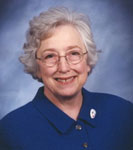Someone should invent mud shoes for wheelchairs. Our cabin in the Hill Country of Texas was hit by a wall of water in a flash flood last week that left mud everywhere, driveway, ramps, steps, yard, inside the water pump. The pump is critical because you can’t use water to wash off the mud. For a while, I and my wheelchair were parked, and all I could use was my mouth to call service people. Helping hands took up carpet, shoveled mud, etc., but it reminded me that everywhere across the United States are people in wheelchairs who get flooded or burned out or some other calamity, and often there is no one to help them.
Hurricane Katrina evacuees in wheelchairs often found Red Cross Centers and other facilities ill equipped to handle them. Knowledge of the needs of these persons is often unclear, and they have no idea who is going to show up at their facility. Many churches and church camps came to the rescue, most of them having connections to persons who could provide access to battery chargers for electric wheelchairs (The battery is different from a car battery!), repair for manual wheel chairs and some for walking aids for persons with mobility problems.
During the flood of 2002 when I asked FEMA for a ramp, they allowed it wasn’t their jurisdiction, and they told me to contact the Office of Aging in Austin, Texas. That office had no idea what I was talking about. “Your ramp washed away? Talk to FEMA.” Disability issues fall through the crack of not belonging to everyone or anyone, so it’s important to advocate for ourselves and those we know. Meanwhile, help a person you know solve a ramp problem. In my case, my kids took our bright blue, warped front door that had been ruined, and made it into a ramp. I loved that door and hated to give it up later.
Well informed churches and individuals can make a difference in times of crisis, especially if they have prepared in advance. For information about what your church can do to prepare internally for needs during a crisis, check out Emergency Planning for Special Needs on my site. The site gives you connections to national emergency help, and also tells you about an emergency Go Bag that you grab to take with you in case of an emergency. If you have disability and medication issues, this could save your life. If you are in a wheelchair, why not volunteer your expertise with the Red Cross or the disaster planning group in your community?
In my case, the mud got shoveled, and I am back on the precious ramps, can even get into the house. Life gets back to normal, and every day I am thankful for family and friends who help.

